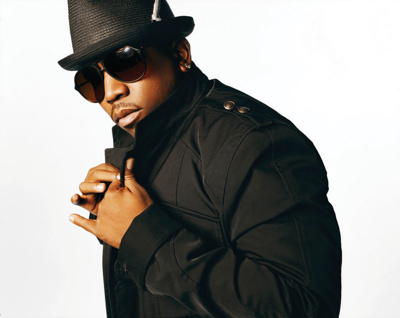This is the story of two shows. Two Big Boi shows. Two radically different Big Boi shows. One the sort of disaster that you wouldn't wish on anyone, the other the sort of joyful triumph that every music fan is hoping for when he or she buys a ticket and parks in front of that big ol' sound system. One show frustrating in the grand scope of its failure, the other fulfilling in the most fundamentally human of ways, an indisputable success as few shows are. This is the story of music industry strangeness, desperate college administrators and the triumph of great music over all of that bullshit.
Our tale starts in Murfreesboro, on the field in Middle Tennessee State University's Floyd Stadium. It's fall, and the skies are grey, the Blue Raiders have just whiffed another game on the gridiron and the rain is starting to come down, cold and raw. It's a miserable day to be standing out in the open, exposed to the elements — a miserable day for watching a miserable football team and a miserable day to catch an outdoor show. It's especially miserable if you're the kind of person who enjoys sipping an adult beverage while watching football and/or live music — a dry campus on a rainy day makes it a bit tough to get in the spirit of things. But that sort of thing wasn't about to stop me from seeing one-half of Outkast, the single most important Southern hip-hop group of all time, just two blocks from my house.
It did, on the other hand, seem to stop most everybody else. After the team cleared out and the stage was set up for Big Boi's post-game performance, there were maybe — maybe — a couple-hundred people left in the stadium. It was ugly. And sad. Big Boi had been booked as a desperate ploy to save the football program, which at the time was in danger of losing its NCAA Division I-A status due to declining attendance. Which made sense, as Outkast had just come off the monster critical and commercial success that was Speakerboxx/The Love Below and the monster back-to-back Billboard No. 1 hits "Hey Ya" and "The Way You Move." If anybody could save the Blue Raiders from backsliding to third-tier status, it was Outkast.
Of course, this was only one-half of Outkast, and the less recognizable half at that — a relatively unknown commodity of a solo performer. (You can blame Big Boi's impeccably cool manner and lack of funny pants for his relative dearth of media attention at the time.) Obviously, the student body had never seen Outkast perform before, otherwise they would have known that even 50 percent of Outkast is going to be 100 percent better than just about any hip-hop show you're liable to see. And it was a great show, truncated as it was. Nobody wants to die onstage, and the chance of electrocution increased with each torrential moment. It was just a shame nobody was there to see it. Well, there were people ... just, y'know, about 30,900 less people than the place holds. It was sort of depressing. OK, it was really depressing.
Fast-forward seven years or so, and I'm in a field in Manchester, Tenn., at the 10th installment of the Bonnaroo Music & Arts Festival. It's Friday and it's a perfect, cloudless night. Big Boi is no longer an unknown commodity. His solo debut Sir Lucious Left Foot: The Son of Chico Dusty — after years of languishing at Jive Records likely due to the fact that most major label employees wouldn't know a great album if it bit them in the ass — was one of the most critically adored albums of 2010, and the sort of instant classic that hip-hop fans don't get very often. The tent where Big Boi and his small army of a live band are playing is packed with people freaking the fuck out — dancing like no one is watching, chanting along with every verse and every hook from Outkast classics (which, incidentally, are the easiest way to get the party started, anywhere, anytime) and the future classics of Chico Dusty.
It was amazing. Flat-out, jaw-dropping incredible. In a weekend filled with some serious funk legends — Dennis Coffey, Dr. John, The Meters, Bootsy Collins — Big Boi not only held his own, but raised the bar, doubling down on what we expect from a great show and then raising the stakes again, just for the hell of it. It was an impeccable set of pure, unmitigated party, and a stark contrast to "The Fail at Floyd." It was the sort of show that will renew your faith in music, humanity and the universe at large. You can expect the same when you get to Limelight this week.
Email music@nashvillescene.com.





